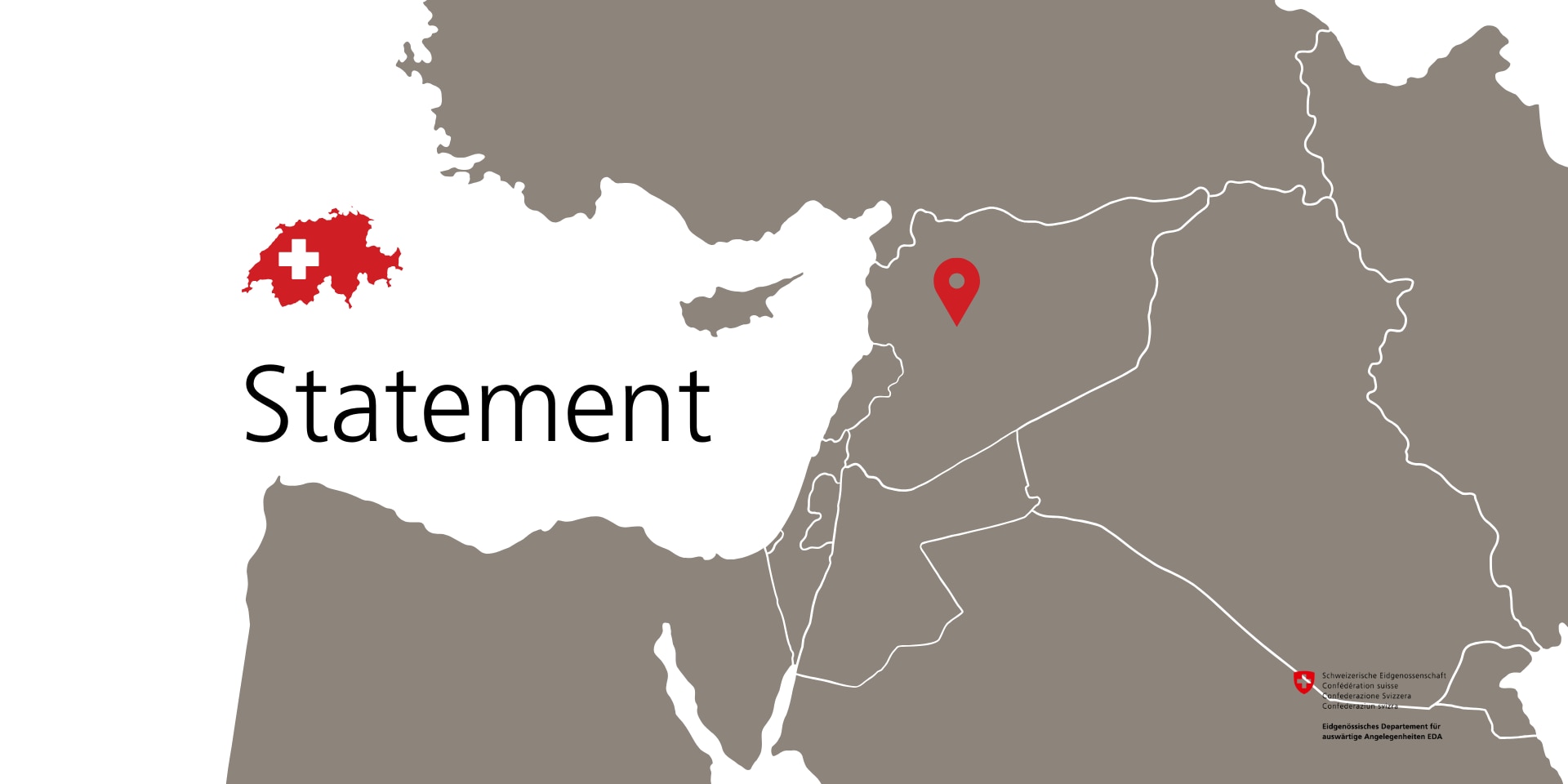Switzerland is deeply concerned about the escalation of violence on the Syrian coast, which has already claimed over 500 lives since 6 March, including many civilians. It calls for de-escalation, condemns all acts of violence against the Syrian civilians and calls on all parties to comply with obligations under international law.
On 6 March, violent clashes broke out in the town of Jableh on the Syrian coast between militias affiliated with the former government of Bashar Al-Assad and troops of the transitional government. The fighting has resulted in numerous casualties on both sides. Reports of civilian killings have been increasing since then.
International law, including international humanitarian law and human rights law, must be respected by all parties. Switzerland calls for an immediate de-escalation of violence. The killing of civilians must stop without delay. In this context, Switzerland welcomes the call by the head of the transitional government, Ahmad Al-Sharaa, to protect civilians, as well as his commitment to restoring civil peace in Syria. It calls all parties to uphold their obligations under international law, including ensuring the protection of civilians. All violations of international law must be investigated, and those responsible must be held accountable.
Switzerland considers the initiation of a national process of dealing with the past in Syria to be more necessary than ever. Furthermore, the national dialogue, involving all segments of Syrian society, must continue. Switzerland firmly believes that only a peaceful and inclusive political transition will enable Syrians to live in peace, security, and dignity. It stands ready to support Syria on this path.

